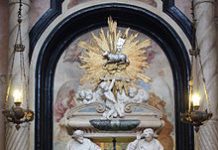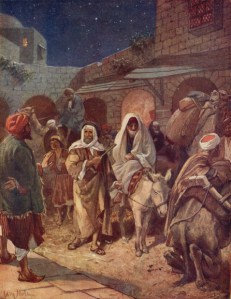Pope Francis is holding an extraordinary consistory of cardinals this weekend, when all the 206 cardinals of the world are called together, sixteen new cardinals will be created, and they will all get to meet, talk, interact, and just get to know each other, in preparation for the next conclave. This latter is, of course, a meeting of cardinals not called by the pope, for at that point he will have gone to his judgement (or, in the last one, retired). Their task in a conclave (literally ‘under key’, for they are locked away in secret) is to elect the new pope. The current law states that one must be under 80 to act as such an elector (but not, let it be said, to be elected pope), so only 116 of those 206 are ‘electors’. After this consistory, that number will be increased to 132, most of whom have been chosen by Pope Francis. We will see what happens.
The cardinals as an official body – their name derives from the Latin for ‘hinge’ – go back to the early Middle Ages, tasked with helping the Pope to govern the Church. In 1059, with the papal bull In Nomine Domini, Pope Nicholas II decreed that they would be tasked with electing a new pope. Their red cassocks and birettas, according to some, signify their readiness for martyrdom.
On that note, there is a rumour that the Pope may resign, but he has denied that. But he is 85, and tempus fugit. I also just read there is another report that the Pope may appoint a ‘co-adjutor’ cardinal, analogous to bishops of that title in a diocese, who have the legal right of succession upon the current bishop’s death or retirement. I doubt Francis has any such scheme in mind, for such a co-adjutor ‘Pope’ is an impossibility, by divine right, for it is not the Pope who chooses the Pope, but God, and a current Pope cannot legally bind a future Pope. But God can. The Church is His, along with her very constitution. There are limits to how far human law, and episcopal, even papal, power, may go.
That is the central controversy over the German synodal path. Divorce, contraception, sodomy, are not wrong because a given Pope or Council said they were, but because God so decreed, written in our very nature. Even Traditionis Custodes has problems, and stands on shaky ground. If the Latin Mass – what is rather inaccurately called the usus antiquior – is embedded within our Tradition from antiquity, then Pope Benedict’s decree in Summorum Pontificum that it can ‘never be abrogated’ was not his law, but God’s, and His authority no particular Pope may supersede. That was the central message of Lumen Gentium from the Second Vatican Council.
What we must keep in our own minds and hearts is that God is in charge of all this, with His own divine laws and decrees, bringing about His holy will through the vagaries of human foibles and weakness, even grave sin, as we have sadly witnessed in the scandalous life of such as Rembert Weakland, about whom the less said is probably better. We can only hope in some way sought God’s mercy.
We do need the barque of Peter to be brought back to an even keel, and more on what that might entail, we will return soon.
For now, pray for the Pope, for the cardinals, and for all those who are tasked with governing God’s Church.
Trust in Him, and don’t lose hope.











